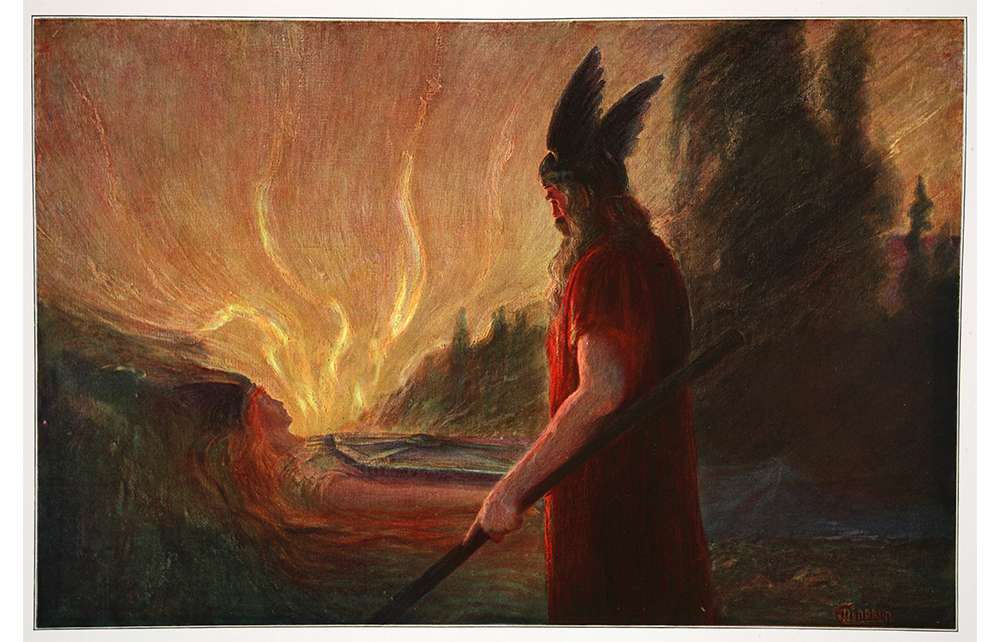Wagner’s Ring is an ambitious cycle of four operas relating world history from Primal Swirl to End of Days. It took 26 years to write, takes 15 hours to perform, a double-size orchestra to play and a specially built opera house to stage.
Michael Downes, the director of music at St Andrews University, places the fons et origo of the epic in Wagner’s frustration as a kapellmeister, when he wrote, unsolicited, to his boss the King of Saxony, proposing a total revamp of the royal music scene. No reply was forthcoming. A second proposal was also blanked. Furious, Wagner flung himself into the Dresden uprising of 1848, financing the manufacture of hand grenades and giving bloodthirsty speeches from the barricades. Simultaneously, he was trying to get the king to stage his latest opera Lohengrin. Wagner never did get the hang of reconciling burning idealism with playing the game.
At the end of the Ring, free love triumphs over the contractual variety. As it did with Wagner
The king exiled him. Fleeing to Switzerland, he forged a career as a peripatetic celebrity conductor. In London, he hated everything and everyone except Queen Victoria. The pollution that inspired Monet’s sublimely foggy pictures left Wagner ranting against industrialisation. London became the blueprint for Niebelheim, the underworld in the Ring. To create its soundtrack he added 18 blacksmiths’ anvils to the orchestra, hammering out the hellish rhythm of the factory’s clatter-and-clank. He wanted to make his new drama sound like nothing ever heard before. Adolphe Sax’s saxophone, saxhorn and saxtuba didn’t sound quite right; so he invented the Wagner tuba.
Operas customarily have a separate composer and librettist. Wagner’s magic consists in him being both. Words first – mostly written in exile in Switzerland; music later. The story drives the Ring, an extended soap opera concerning gods, mortals, mermaids, heroes, femmes fatales, dragons, giants, magic spells, sibling incest and lots of motivating gold.







Comments
Join the debate for just £1 a month
Be part of the conversation with other Spectator readers by getting your first three months for £3.
UNLOCK ACCESS Just £1 a monthAlready a subscriber? Log in